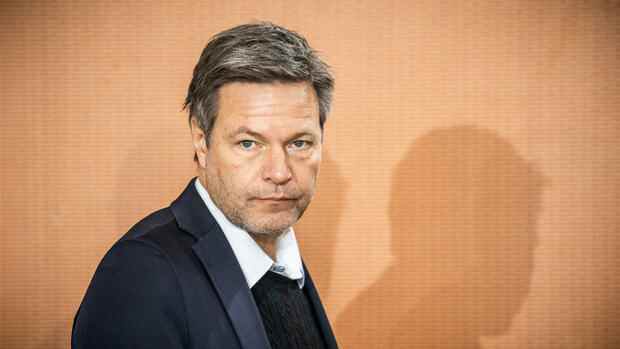Germany wants to accept contracts for a maximum of five years because of the planned phase-out of fossil fuels.
(Photo: dpa)
Germany is caught between energy shortage and climate protection, between pragmatism and ideology. The energy partnership with Qatar, which Robert Habeck (Greens) pragmatically agreed as Federal Economics Minister and at the same time fights against as Climate Protection Minister, will do nothing to solve the problem of energy shortages.
At least not as long as the federal government does not give German suppliers clear signals that they can and should procure natural gas in the medium term – and not just in the next five years.
China has now signed a 27-year contract with Qatar. This is a record in the liquid gas segment. Such a long term does not have to and must not be the case in the negotiations with Germany.
But it is understandable that a gas producer like Qatar, which is currently investing $45 billion in almost doubling its gas production and liquefaction, does not sign two or three-year supply contracts. Such large investments need stable customer relationships.
Top jobs of the day
Find the best jobs now and
be notified by email.
And why should Qatar risk that, after Germany, long-standing customers such as Japan, South Korea or China would also want shorter terms if Habeck were to get them?
In time, Germany must also think of the Gulf States
Habeck has to be honest: If Germany wants to get through the energy crisis in the next few years, we will need LNG for at least another ten years after Russia has left. LPG is ecologically better than coal. And the sooner the old charcoal piles go offline, the better.
Our country will need gas (LNG) as a raw material for the chemical, fertilizer and other industries for decades to come. Green hydrogen has priority, no question. But the way there is a long one in view of the growing demand for (renewable) energies.
We need a fair and comprehensive energy partnership between Europe and the Gulf States. And Germany needs it for at least ten years – an energy partnership that does justice to the turning point announced by the Federal Chancellor.
Robert Habeck’s desire for short-term agreements will not convince either the sheikhs or German industry. And the constant nagging about Qatar, as is currently the case at the desert World Cup, is of little help.
The danger that China will completely depend on Germany in the liquefied gas business is real. In any case, Beijing has seized the opportunity and already secured the first deal for Qatar’s larger gas quantities available from 2026. Time to act, Mr. Habeck.
More: “Contemporary Form of Slavery”: Qatar, the Kafala System – and the Life of the Migrant Workers
